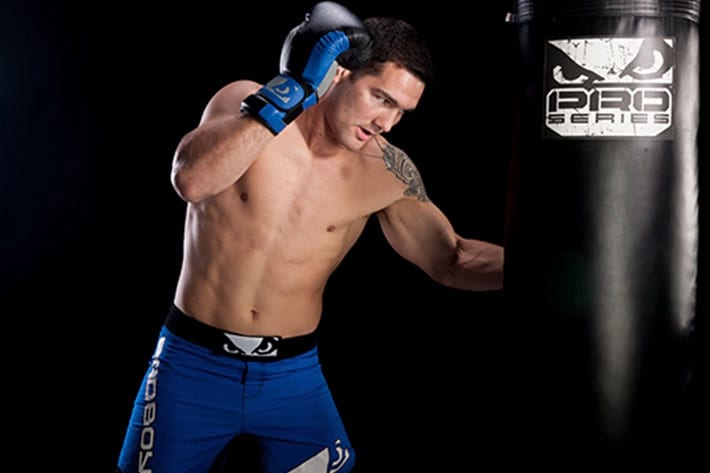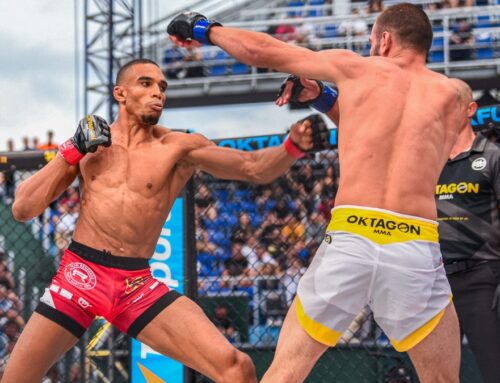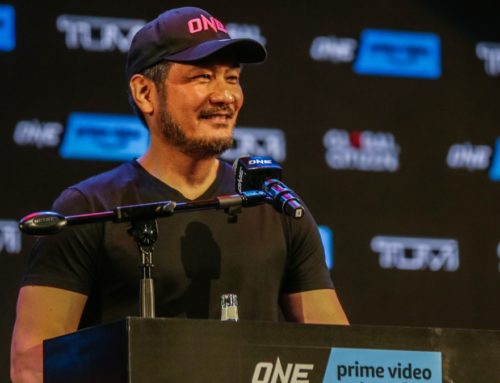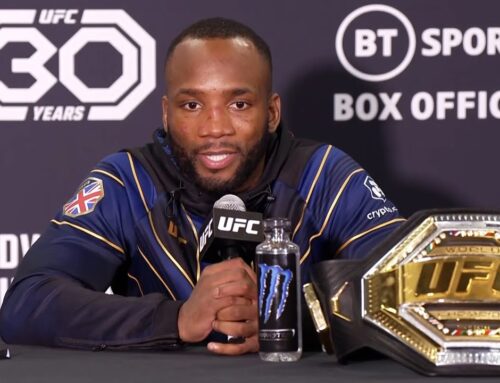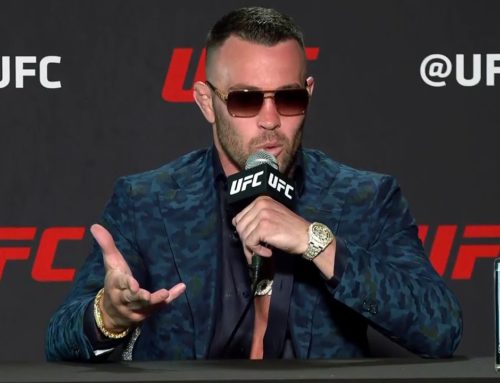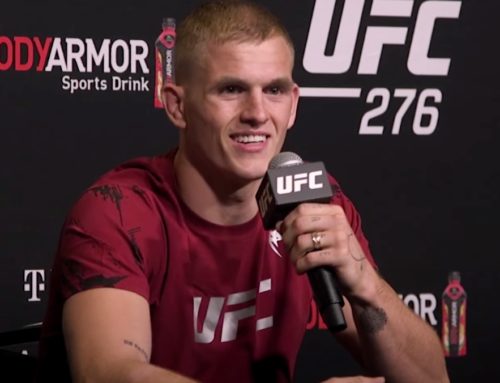Safe to say the knee of Yoel Romero slamming into his face when shooting for a takedown wasn’t how New Yorker Chris Weidman imagined his long-awaited Madison Square Garden dream turning out. Wasn’t what he expected, wasn’t what he forecast, certainly wasn’t what he wanted. But it was, nevertheless, the violent reality of the situation in November, when Cuba’s Romero improvised and let fly in round three of their fight, thus handing Weidman his second defeat on the trot.
It would have been a painful defeat on any other day, at any other time, but was one made all the more painful given its context: Madison Square Garden, New York City, Weidman’s hometown; an event, New York’s first, which had been so long in the making; an event for which Weidman was a poster boy; an event for which he had fought and promoted and been doing so for years. This all combined to make a shocking defeat not only that but also the toughest of Weidman’s otherwise stellar professional MMA career. It was a defeat akin to getting beaten up in full view of his family. On his birthday. The result hurt more than the knee. It wasn’t supposed to be like this.
This Saturday (April 8) Weidman goes again. He fights again, in a match with Dutchman Gegard Mousasi, his first since the Romero shocker, and does so again in New York, albeit in Buffalo rather than on the hallowed grounds of MSG.
Whatever the location, this fight is absolutely crucial for the former UFC middleweight champion. Without a win since May 2015, he needs one of them, desperately, and he also needs to cast out any demons that may linger as a consequence of Yoel Romero’s knee scrambling his senses and wrecking every planned homecoming party scheduled that weekend in and around the Baldwin area. His ability to do this – put the horror to the back of his mind – will have a major bearing on whether or not he gets the result he wants against Mousasi. At this point, he just needs a win.
“I think I need to prove myself – number one,” Weidman said on last week’s UFC 210 conference call. “I’ve got to put on good performances. That’s what I want to do. I want to go out there, put on a good performance and then I hope the people back me and want to see me fight for the title. They want to see what’s going on. I am just going to keep fighting whoever they (UFC) put in front of me.”
The desperation of a challenger is something Weidman, 32, has yet to encounter. Long the prospect, the phenom, the heir apparent, and then eventually the champion, the Ray Longo-trained fighter has always possessed an air of calm, both inside and outside the Octagon, and has benefitted from being the all-American hero of whom great things are expected.
How quickly things change. First Luke Rockhold stopped him in December 2015, snatching his UFC middleweight title in the process, and then Romero tore up the script 11 months later. Now Weidman, 13-2, is not even a winning fighter, much less a champion. He’s not the best middleweight in the world, nor is he being called the potential best middleweight in the world. Weidman, instead, has simpler ideas and steps. One at a time. Baby ones. He has designs solely on getting better, improving his fortunes. Better yet, winning.
“I’ve been more motivated for this fight, and I really got myself in a great place mentally, spiritually and physically,” he said. “I just feel great – healthy. I’m excited to go out there and put on a show.”
As well as being one of the best middleweights in the world, Gegard Mousasi, Weidman’s opponent, is also remarkably composed in the cage and has the swagger of a man for whom this isn’t his first rodeo. In fact, it could be argued Mousasi, an experienced dark horse of the division, is the toughest kind of opponent for someone like Weidman, a guy looking to rebound and rebuild, because he is buoyed by two things Weidman currently lacks: form and confidence.
Heading into Saturday’s fight, Mousasi’s confidence is a by-product of Weidman losing his last two fights, but also the result of his own recent form, specifically three consecutive stoppage wins against Uriah Hall, Vitor Belfort and Thiago Santos. Those three knockouts, all racked up during a productive 2016, heralded the emergence of a less sleepy and more dynamic Mousasi, a contender keen to get the job done, make an impression, justify a title shot. They signified a fighter hitting his prime.
“I know how Chris Weidman’s going to fight,” Mousasi, 31, said on last week’s UFC 210 conference call. “He’s going to come forward, he’s going to try to put the pressure on me, work on the cardio, do some wrestling, do some striking. But, at the end of the day, I’m prepared. I know exactly what he’s going to do. I’m more than prepared. I’ve got my skills, and I’m going to show it on April 8. I’m very confident.”
Mousasi, 41-6-2, has always projected a quiet confidence, but never more so than right now. For good reason, too. He exacted sweet revenge when knocking out Uriah Hall in the first round of their rematch last November, and with that came a liberation and a chance to start afresh. Grey clouds shifted and questions were answered and Mousasi now approaches his bout with Weidman this weekend boasting a freedom the New Yorker once possessed but currently seeks.
It’s not a belt. It’s bigger than that, more important than that. While Mousasi fights Weidman for the chance to one day win something Weidman formerly held, Weidman wants some of what Mousasi has now: form, momentum, confidence. Without them, a tough sport becomes even tougher.

